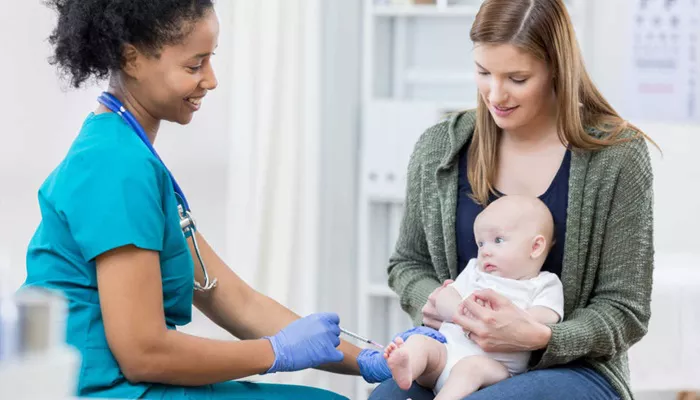A new study reveals that a forthcoming RSV vaccine for pregnant women could significantly reduce hospitalizations and emergency visits for infants. Starting this September, the UK Health Security Agency (UKHSA) and the Joint Committee on Vaccination and Immunisation (JCVI) are set to launch the new vaccination program.
The detailed analysis estimates that the program could prevent approximately 5,000 infant hospitalizations and 15,000 emergency department visits. These figures are based on an expected 60% uptake rate among pregnant women. The vaccine is also projected to reduce RSV illnesses in infants under one year old by 70,000, cut GP consultations by 20,000, and prevent over 200 infants from needing intensive care.
Respiratory Syncytial Virus (RSV) is a common virus that affects around 90% of children within their first two years. Though it usually causes mild symptoms similar to a cold, it can lead to severe conditions like pneumonia and bronchiolitis. RSV is a leading cause of infant mortality globally and strains children’s hospitals during winter, causing significant pressure on pediatric intensive care units. In the UK, RSV leads to about 20,000 hospitalizations and 20 to 30 deaths annually.
UKHSA is collaborating with NHS colleagues to ensure a smooth rollout of the new vaccine programs and will monitor their impact through national surveillance.
Professor Dame Jenny Harries, Chief Executive of the UKHSA, emphasized the importance of these programs. She said, “The RSV vaccines for pregnant women and older adults offer a significant opportunity to prevent severe illness and alleviate NHS winter pressures. I urge all eligible individuals to get vaccinated when the programs start in September.”
Christine Burlison, a mother from Southampton whose baby suffered from RSV, is advocating for the vaccine. Her daughter, Aria, was hospitalized with bronchiolitis at just 11 days old due to RSV. Her son, Jude, also contracted RSV but received prompt care, resulting in a shorter hospital stay. Burlison expressed her relief at the new vaccine, stating, “The option of a vaccine that could prevent other families from experiencing what we went through is incredible. Knowing that there is now a way to protect newborns from RSV is a tremendous comfort.”
The RSV vaccine will be available from September 1, 2024, in England. The vaccine is especially crucial as RSV infections peak during winter. Pregnant women are advised to get vaccinated from 28 weeks of pregnancy onwards.
Dame Jenny Harries added that the vaccine enhances the immune system to produce antibodies against RSV, which then pass through the placenta to protect the baby from birth. The vaccine reduces the risk of severe bronchiolitis by 70% in the first six months of life. Approved by regulators in the UK, Europe, and the USA, the vaccine has been safely administered to thousands of women worldwide.
Andrew Gwynne, Minister for Public Health and Prevention, highlighted the importance of maternal vaccinations, sharing his own family’s experience with RSV. “My grandson’s RSV infection led to weeks in intensive care and long-lasting health issues. This new vaccine program offers a chance to prevent such trauma, reduce hospitalizations, and save lives. I urge everyone eligible to get vaccinated.”
Steve Russell, NHS National Director for Vaccinations and Screening, praised the study’s findings. “The RSV vaccine will significantly reduce winter pressures on NHS services, keep infants out of hospitals, and save lives. Pregnant women who are 28 weeks pregnant or more should speak to their maternity team or GP about getting vaccinated. Those aged 75 to 79 should also take up the vaccine when invited by their GP.”
In addition to the maternal program, a free RSV vaccine will be offered to all individuals turning 75 on or after September 1, along with a one-time campaign for those already aged 75-79. The same modeling suggests that the catch-up program for older adults could prevent around 2,500 hospital admissions, 15,000 GP visits, and 60,000 RSV illnesses in this age group.


